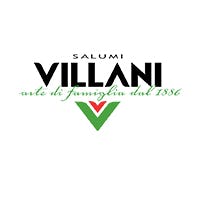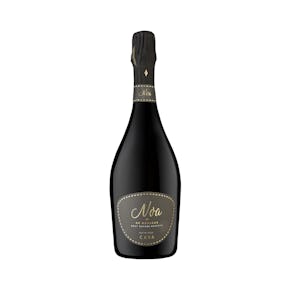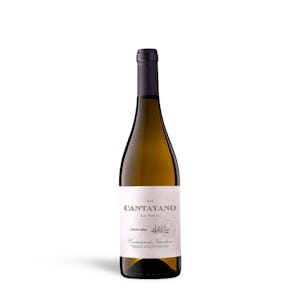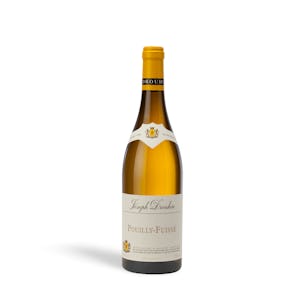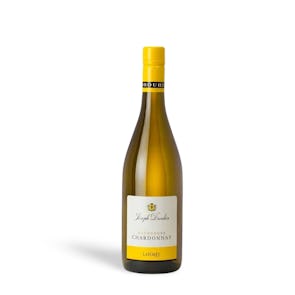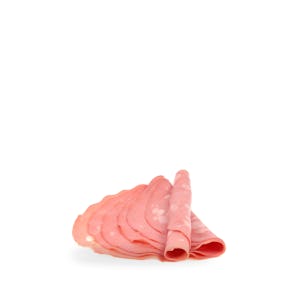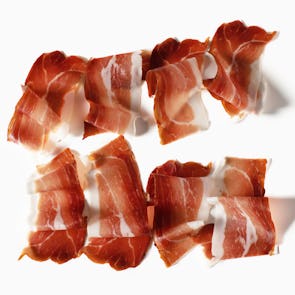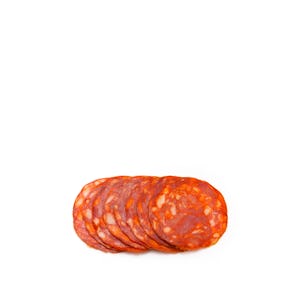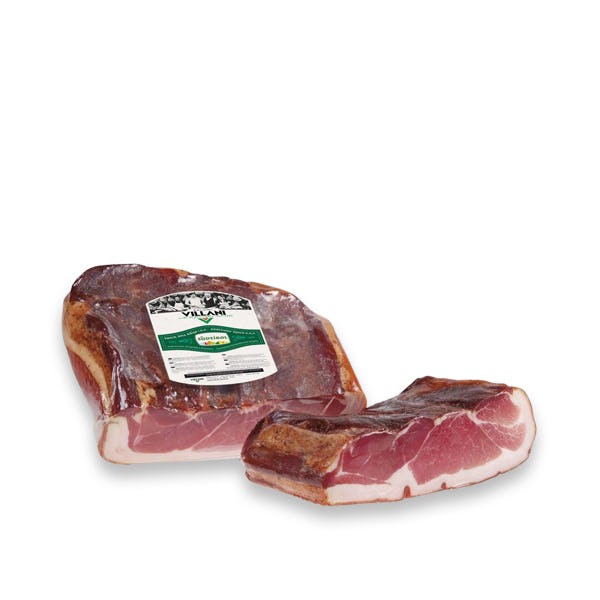
TASTING NOTES FROM THE CURATOR
A lightly smoked, cured ham, speck comes from South Tyrol in Northeast Italy. The pigs are fed a specific diet, and raised in good conditions, allowing their meat to develop an impeccable quality. The Villani Speck is salted with traditional ingredients like pimiento and juniper, then lightly smoked.
Speck is often compared to prosciutto, but it has a darker color and is denser than prosciutto. Its smell is fresh and aromatic, and will remind you of mountain air. It has a great sweet and savory flavor, with a smoky aftertaste.
PREPARATION AND PAIRINGS
Speck is great as part of our charcuterie, paired with cheeses and dried fruits. You can also use it in your salads, and your homemade pizzas. It’s also great in pastas, perhaps with porcini mushrooms, or shallots.
Enjoy a different take on your breakfast eggs by including speck. Melt some butter in a non-stick pan, and brown the Villani Speck only slightly. Break two eggs in to the pan, right on top of the speck. Break the yolks, and stir carefully. Keep the eggs soft. Season with a bit of pepper (speck is already salty) and serve with some crusty bread.
THE EQUILIBRIUM OF TRADITION AND MODERNITY
Founded in 1886 in Castelnuovo Rangone, near Modena, Villani was properly established when Ernesta and Costante Villani bought a building in the town center. They were already marketing dry-cured ham, and with this venture, they expanded to producing salami, coppa, bacon, mortadella, and cooked ham.
In the 1930s, the company was already well into exporting. And Giuseppe, their son (one of eleven) had gotten an idea when he returned from the States. Drying hangers would revolutionize dry-cured pork production processes.
The idea was quickly adopted by more and more charcuterie producers, and these mobile hangers are still used today as basis for the modern drying process. But Giuseppe’s passion did not stop there. He went all over Italy, searching for new regional recipes and methods, gathering experience along the way. Eventually, Villani expanded their production to more regional specialties, sold both worldwide and in the areas where the recipes originated, which served as great recognition and appreciation for the quality of their meats.
Villani now was five processing sites, catered to making different meats according to DOP and IGP labels. The meats are still made with traditional means—manual skills fundamental to the quality, but they have also adapted to modern systems and research. The family’s coexisting spirits of tradition and modernity allowed the company to bloom into what it is now.
Storage Instructions
Vacuum-sealed packs of hand-carved cured meats can last up to five months in the refrigerator (never the freezer). Once the pack is opened, they’re best enjoyed within the day.

